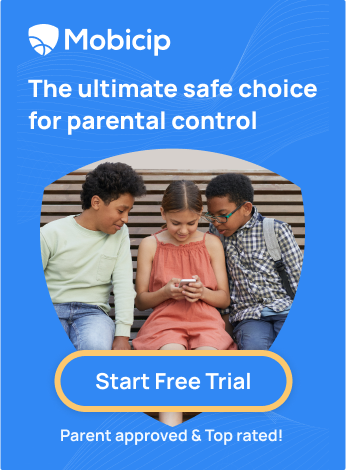Is Your Teen Oversharing Online? What can Parents do about it?

If you suspect your teen is oversharing online, addressing the situation with care and open communication is important. Here are some steps you can take:
Educate Them on Online Privacy:
Start by having a conversation about the importance of online privacy. Help your child understand the potential risks of oversharing personal information on social media platforms. Snapchat is one such app that allows sending of pictures, videos and text messages to a selected group of recipients. Discuss what digital footprints are and how information shared online can have long-term consequences.
Set Clear Boundaries:
Establish rules for what is and isn't appropriate to share online. Encourage them to think before posting and consider the impact of their content on their reputation and safety. Emphasize the importance of keeping certain details, such as home address, phone number, and school information, private.
Review Privacy Settings:
Go through the privacy settings of the platforms they use. Ensure that they are aware of and utilizing the privacy controls available. Teach them how to limit the audience for their posts and adjust settings to enhance their online safety.
Monitor Online Activity:
Look out for your teen's online activity without invading their privacy. Establish trust by explaining your intentions and emphasizing that your goal is to ensure their safety. Consider using parental control tools like Mobicip to monitor and manage their online presence responsibly.

Encourage Offline Activities:
Inspire them to have a healthy balance between online and offline activities. Motivate your teen to engage in hobbies, sports, or other interests that don't involve constant sharing on social media. This helps reduce the need to overshare and provides a more well-rounded life.
Model Responsible Online Behavior:
Be a positive role model by behaving responsible online. Show them how to use social media platforms in a way that prioritizes privacy and respect for others. Share your experiences and lessons learned from navigating the digital world.
Open Communication:
Maintain an open line of communication with your teen. Make sure they feel comfortable discussing their online experiences and concerns with you. Foster a supportive environment where they can ask questions and seek guidance without fear of judgment.
Address Specific Concerns:
If you have specific concerns about certain posts or behaviors, address them directly. Discuss why certain types of content might be risky and help them understand the potential consequences. Offer guidance on alternative ways to share and connect with friends.
Remember, the key is to have a balance between respecting your teen's autonomy and ensuring their safety. By nurturing open communication and providing guidance, you can help your teen navigate the digital landscape responsibly.




